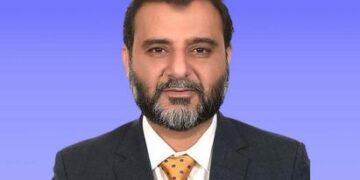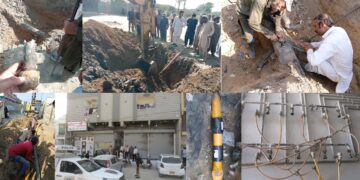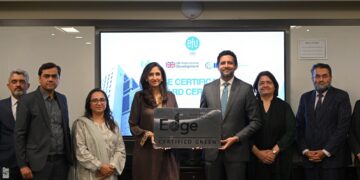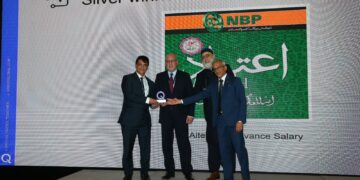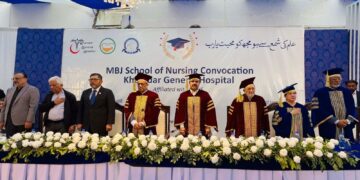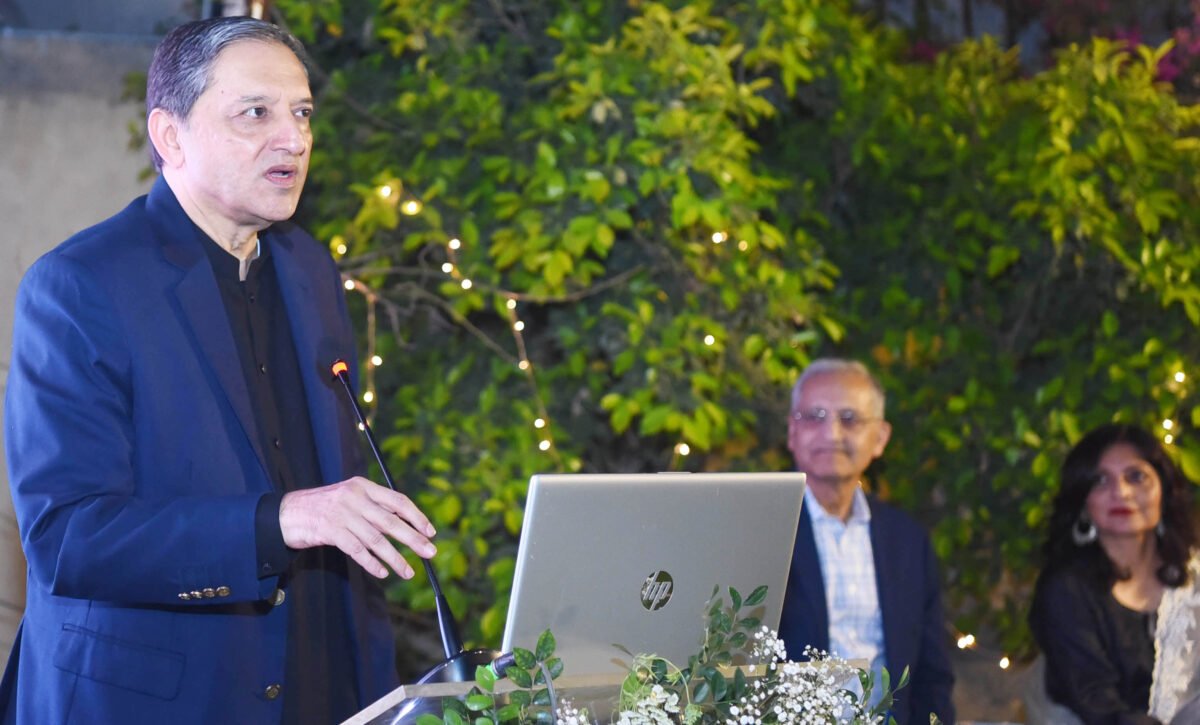A major challenge faced by the country is to stop the deindustrialization situation which is alarming and must be reversed. It is an onerous task but it is not impossible. The industrial base needs to be reinvigorated. The government has focused itself on a doable export-led growth strategy that would attract investors to establish more export based industries. The government is working to remove duties for all imported raw material and reduce the Regulatory Duties. I assure you that the government would ensure and provide all protection to the industries so that the engines of economy continue ticking.” This was stated by Mr Abdul Razak Dawood, Advisor to Prime Minister for Commerce, Textile, Investment, Industries and Production at a Business Meeting with CEOs hosted by Employers Federation of Pakistan.


Addressing a select gathering of 70 CEOs and top businessmen, Mr Dawood further disclosed that the Commerce and Finance Ministries have developed the National Tariff Policy that would have a three-year duty structure so that the ad hoc syndrome of fixation of duties would end once and for all. This Policy would go a long way in instilling confidence in trade and industry and would bring about transparency, determine actual global prices, and reduce corruption and evasion.
The Advisor to Prime Minister disclosed that on 4th November, a large Chinese Buyers Expo is being held in China and that Pakistan has been given the status of Guest of Honor. He advised the business community to take advantage of this and participate in the Expo where Pakistan has been given two strategic stalls. He further advised that Pakistani exporters must study and determine what products could be exported to China. He gave an example that Pakistan has a surplus of Soybean Meal whereas China has a huge demand for it. He also disclosed that Pakistan is negotiating the second round of Pak China FTA that would yield substantial results for trade and industry under the FTA regime.
Mr Dawood also informed that on 30 September, a strong Saudi Arabian delegation is visiting Pakistan with the sole intention of investing in Pakistan. This is a marked change from the past when individual investors would usually come to study the investment climate. However, this mission is determined to invest in many sectors and that the government would be fully involved in facilitation and support. He was of the opinion that there are couple of power plant projects in Punjab that need heavy investment. He also said that Pakistan needs more cement plants, especially near the sea in Balochistan so that it becomes cheaper to export cement from there due to high inter provincial transportation cost. Pakistan also needs a Naptha Cracker plant that would be ideal investment opportunity for Saudi investors. He also said that the Saudis would be requested to invest in Engineering, Chemical, and Information Technology with focus on exports as well as import substitution.
Mr Dawood said that it is high time Pakistan got out of the 10-10 export regime where ten major commodities and products are exported to ten major markets. The government and private sector should join hands to establish the concept of Pakistan Inc. Pakistan needs a vision of greatness and it is a pity that after seven decades, the vision of greatness is still elusive.
Earlier, Majyd Aziz, President Employers Federation of Pakistan, in his welcome address reminded the Advisor that the situation in Pakistan is much more different then the first three years of the Musharraf government when he held the same portfolios in the technocrat Cabinet. Today, two major political parties and a discredited politico-religious person will be breathing behind the necks of the government. Moreover, every department, every state corporation, every government agency is mired in a quagmire but it is imperative that there is a fundamental change and reforms are implemented. The dynamics have changed and opposition parties as well as social media will make mountains out of molehills.
Majyd Aziz proposed that an Economic Advisory Council consisting of private sector must be formed and should work in tandem with the Council of Economic Advisors consisting of economists and academicians that was formed recently. He also proposed that all Boards of government organizations should have a majority of private sector in them. He further proposed that a permanent Standing Committee be formed of business representatives that would directly advise the Prime Minister on economic matters. He also proposed that under the Board of Investment, there should be Sectoral Advisory Councils comprising of private sector, experts, and the various government departments so that structured and pragmatic presentations could be made for the BOI. He also proposed that Export Development Funds be used to appoint consultants for GSP Plus and Better Work Program of ILO and they be stationed in Ministry of Overseas Pakistanis and Human Resource Development. Moreover, he proposed that a five-year Industrial and Investment Policy must be announced after a formidable debate, discussion and deliberation among the stakeholders. Pakistan does not have such a policy and thus there is no institutionalized channel for existing and potential investors and industrialists.
Majyd Aziz also wondered when PTI Ministers and Parliamentarians would get out of the jalsa mood and accept the fact that they are now the government and that they have a role to play as policymakers and facilitators. He also advised that the government should restrain itself from too much spin doctoring, especially by the chief spokesperson who hogs the media all day long.
Ismail Suttar, Chairman of EFP Economic Council and Member Board of Directors of EFP, introduced the EFP Economic Vision 2030 that was launched in May 2018. He said that the framework of ‘EFP’s Economic Vision’ mainly depends on achieving a higher rate of GDP growth without disturbing the low-income group of society. This higher rate of growth can be achieved through implementing the supply side economic policies that cover investment, industrial, and labor policies. At the same time, for providing immediate reliefs to the weaker segments of the economy, the Vision has suggested some short-term measures in the proposed monetary and fiscal policies. Conservatively speaking, at least 500,000 new job opportunities could be created due to this seven percent growth in GDP. After enhancement in economic activities, including infrastructure development, fast track privatization program, and lower rate of GST, further acceleration in growth is expected. He added that in order to analyze the future trend of economic growth, EFP performed different simulation exercises based on 5.1 percent, 7 percent, 10 percent and 12 percent rates of growth in GDP. Based on these growth rates, EFP forecasted GDP volume and per capita income for the year of 2030. The EFP strategy is divided into two parts: first belongs to provide immediate reliefs through demand management (fiscal and monetary) policies. The second part is the supply side policies to achieve the targeted rate of growth for sustainable development. He also said that this Business Meeting is the first in the series and that EFP Economic Council would be interacting with Federal and Provincial governments for advocacy and lobbying in order to achieve the objectives of a prosperous Pakistan.
Mr Dawood also responded to a barrage of questions, proposals, complaints of the guests and in his replies he also provided more insight in to the future plans and policies of his Ministries as well as the government. Later, Asif Zuberi, Co-Chairman of EFP-EC and Member Board of Directors of EFP presented the Vote of Thanx before the dinner. Mementos were also presented to the Advisor to Prime Minister.
By: Maria Shah







